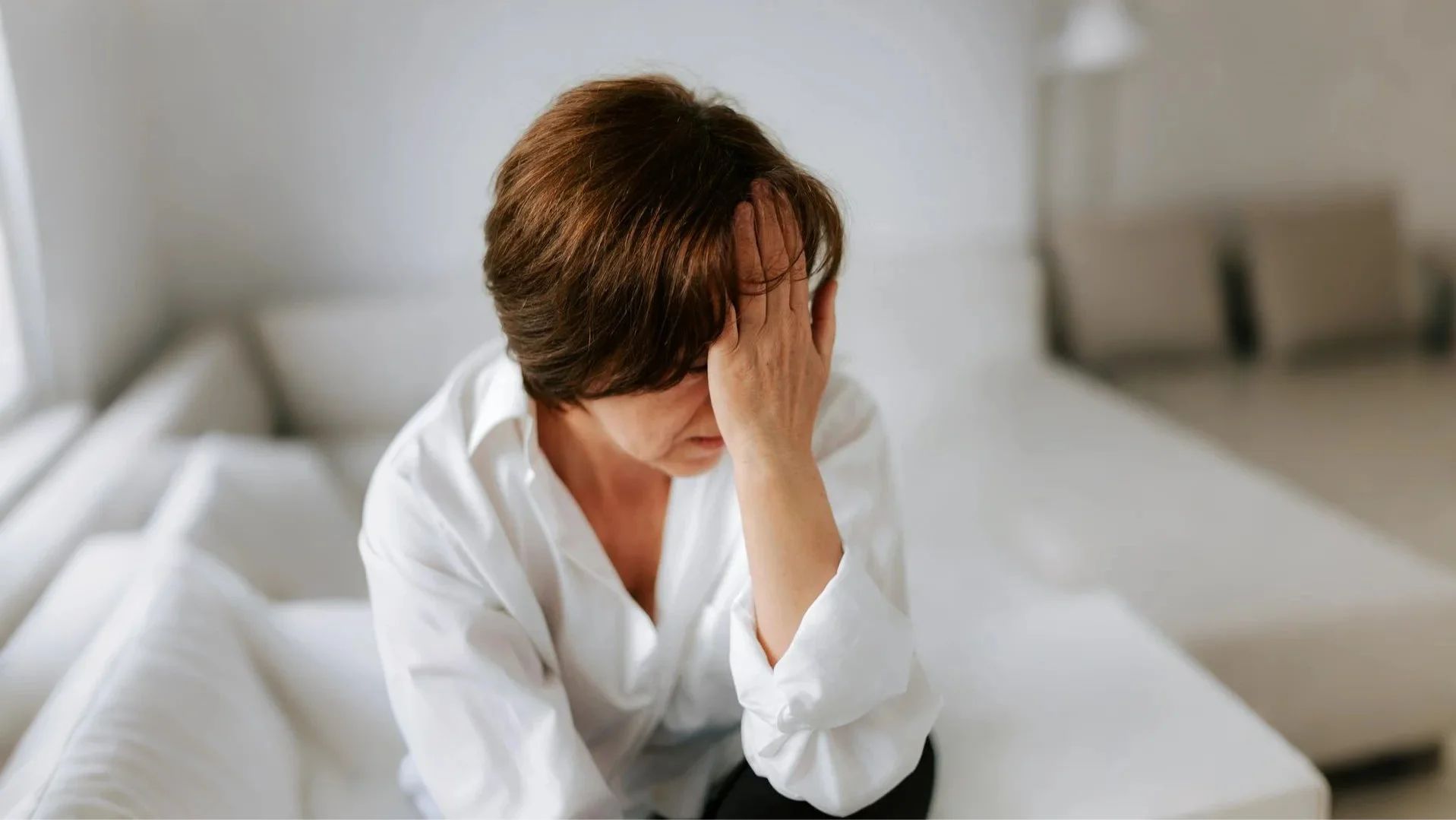Hormone Optimization: A Beginner's Guide For Healthy Life
Do you ever feel like you are just not yourself and don't know why? It might be your hormone levels. These chemical messengers have a big effect on how you feel every day.
When your hormone levels are off, you feel it in your body and mind. Good hormone health is important if you want to feel your best. This guide will discuss how hormone optimization can help you regain your energy, strong spirit, and good well-being.
Hormone optimization is about finding your body's natural state of balance. It's a journey back to feeling like yourself.
What Are Hormones?
So, what are these powerful chemicals? Think of them as your body's way to send important signals.
These chemical messengers help you feel and act in many ways. They are made by groups of glands in the endocrine system. The pituitary gland, thyroid, and ovaries produce the bulk of your body's hormones.
After your body makes these chemicals, they move through your blood to many parts of your body. They give messages that help control things like how you use energy, grow and feel.
The amount of each hormone in your body is important. Your body tries to keep hormone levels steady, so things work the way they should. Things may be wrong if these levels are too high or too low. Changes in hormone levels can affect your well-being throughout the day.
What is Hormone Optimization?
Hormone optimization is a special type of hormone therapy. The goal is to bring your body's hormones back to the level where they work best for you, which is different from normal hormone replacement.
Many times, normal hormone therapy uses the same dose for everyone. That dose may not be right for you or for other people. Hormone optimization looks for what is best for each person.
Optimization is not about finding one solution for everyone. It is about making a treatment plan that fits you. A healthcare provider will examine your symptoms, health history, and lab results, helping them understand your hormone levels and the necessary treatments.
Common Signs and Symptoms of Hormonal Imbalance
Feeling constantly drained and overwhelmed can be more than just stress - a common sign of hormonal imbalance.
Knowing the signs of a hormonal imbalance is the first step to getting the help you need. The symptoms can show up in many ways and can affect your body, your mood, and even how you think. You may feel weight gain that you can't explain, feel tired every day, get sudden hot flashes, or have night sweats that bother your sleep.
Other usual signs are hair loss, irregular periods, mood swings, or lower sex drive. There can be many reasons for these problems. But often, these show that there might be something going on with your hormones. The good news is that hormone problems can be treated.
Physical Signs You May Notice
Physical signs are often easy to spot when you have a hormonal imbalance. You may see changes in your body or feel different without knowing why. These changes can make the way you feel or look less good, and that can hurt your confidence.
These signs can be very different for each person. Still, there are some things many people feel. Watch out if you think any of these:
Sudden weight gain, mostly in the belly area, or difficulty losing weight.
Hot flashes and night sweats make sleeping or going about your day tough.
Hair loss or getting thinner hair, or if your hair feels dry and breaks easily.
Changes in body muscle mass or having more fat.
Other signs that you may notice in your body are vaginal dryness, which can make sex hurt, and changes in sleep patterns that lead to feeling tired. Over time, low hormone levels can also cause bone loss, which increases the chance of osteoporosis.
Emotional and Cognitive Symptoms
A hormonal imbalance can change the way you feel. It can upend your good emotional health.
Many people say they feel more irritable or anxious. Some feel down for no known reason. This can affect how you talk or act with their family or friends. A hormonal imbalance can lower your quality of life.
Chronic stress can make these problems worse. It can also make a cycle that is hard to stop. Some common signs that show up in how you feel and think are:
You might notice mood swings often or feel more grumpy than usual.
You can feel quite nervous or down a lot.
It can be hard to think clearly. Some people call this "brain fog."
You may feel that life is not as good as it used to be.
These feelings are not made up or just in your mind. Hormonal changes are real and happening in your body. Taking care of what is causing this can help you feel steady and think clearly again.
Benefits of Hormone Optimization Therapy
The goal of hormone optimization isn't just a number on a lab test. It's helping you reclaim your vitality and feel your best every day.
When your hormones are at their best level, you feel better daily. The therapy helps raise your energy levels, so you feel less tired. It also helps keep your moods steady.
Many people get better results with weight loss after starting this therapy. All these changes work together to give you a good quality of life.
Improved Energy and Mood
Feeling tired all the time and being moody can wear you down. One of the most talked-about benefits of hormone optimization is raising your energy levels. When hormones like thyroid and testosterone are balanced, you may feel less tired.
When your energy improves, your mood improves, too. Changes in hormone levels often cause mood swings, anxiety, and depression. By fixing hormone levels, optimization therapy helps you feel more in control of your feelings. It helps you feel positive and steady in your day-to-day life.
This boost to energy and mood can have a big impact on overall health. When you feel better and more lively, your quality of life goes up. You feel more like yourself again, brighter, and happier.
Support for Metabolism and Weight Management
Are you gaining too much weight despite trying your best with diet and exercise? Your hormones may be the culprit.
Some common symptoms of hormonal changes are:
Unwanted weight gain can lead to more fat around the belly.
A sluggish metabolism often makes weight loss hard to do.
Insulin resistance is a problem that may contribute to weight gain and weight loss struggles.
Hormone optimization is not a quick fix for weight loss. It can be a useful way to help you reach your goals. When your hormones are balanced, the body finds it easier to manage weight. This may help you see better results from the work you put in for weight loss. Check out LifeLab’s exclusive treatment plans or wellness services, including hormone and testosterone replacement therapy.
Hormone Optimization for Men vs. Women
Both men and women can have hormone problems, but the way they feel and get help is not the same. Hormone optimization looks at and works on what each person needs based on their gender. The main sex hormones, and what they do, are not the same for everyone. Men and women each have their own sets of sex hormones, which is why treatment for them will be different.
For women, the main goal of therapy is to help balance estrogen levels, which helps deal with hot flashes and vaginal dryness. For men, treatment is often about getting testosterone levels back to normal. It can help with problems like losing muscle and erectile dysfunction. The plan is always made just for you.
Unique Considerations for Each Group
When planning treatment, the doctor will look at more than just the main hormones. For women, the history of their reproductive health matters. Knowing about past pregnancies and use of birth control is important for their treatment.
For women, key considerations include:
Managing menopause symptoms: When estrogen levels go down after menopause, there is a greater risk of osteoporosis and heart disease.
Addressing perimenopause: This is a change that brings its own issues. It needs to be looked after with care.
Long-term health: Therapy can help lower the chance of health problems that come from low estrogen.
For men, the main goal is to help with problems caused by low testosterone. Low testosterone can affect how your body feels and works. Some things that may happen are muscle mass dropping, feeling tired, and changes in how you feel or your mood. A full checkup helps us look into all these issues that come from low testosterone and losing muscle mass.
How Hormone Optimization Therapy Works
A hormone optimization therapy should always be administered by a certified health provider.
After a hormonal imbalance is found, your provider will devise a treatment plan. There are different choices they may offer you. A lot of people try bioidentical hormone replacement therapy (BHRT) to feel better. In this therapy, the hormones are the same as the ones your body makes, which may help your body work correctly and reduce side effects.
Your plan will fit your needs, wants, and lifestyle. Here are some common treatment and delivery method options:
Pellets: These go under the skin. They give your body a steady dose of hormones for three to six months.
Creams and Gels: You use these every day, but there is a chance they can get on other people.
Pills: You can choose the right dose of medicine with consultation from doctor. You have to take one every day.
Injections: A lot of people use these for testosterone. These can make your hormone levels go up and down.
Along with medicine, your treatment plan will mostly ask you to change some things about how you live. Eating healthy food, moving your body every day, and finding ways to feel less stressed are all important parts of this. These lifestyle changes can help make your treatment plan work better.
Conclusion
Optimizing your hormones can make you feel better every day. Talking to a health provider about hormone optimization can help you get the right treatments for your body, leading to a happier life. Talk to a doctor now at LifeLab from our board of certified professionals for a treatment plan.
Frequently Asked Questions
-
Yes, the use of hormone therapy can come with risks and some side effects, like other treatments you get. A plan made for you that uses bioidentical hormone therapy helps lower these risks. The kind of side effects you may have often depends on the way the hormone therapy is delivered and your health history, so it's important to talk with your provider about this.
-
Results vary from person to person. Many say they feel better and notice their energy levels increase in just a few weeks. The quality of life might start to get better during this time, too.
It can take a few months for your hormone levels to settle. Then, you get the most from your treatment plan.
-
You can help your hormone balance by making some lifestyle changes. A healthy lifestyle makes a big difference. Getting good quality sleep is important. You should also keep your stress levels low. You can do this with things like yoga or meditation, which could offer some benefits of hormone optimization.
Eating a balanced diet is another good way to help your hormone balance. On top of that, regular exercise has a key role in keeping hormonal health in check naturally.




